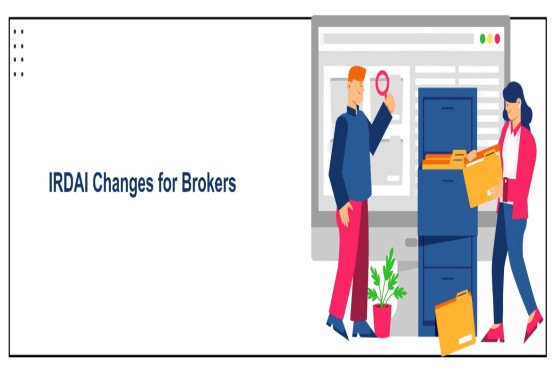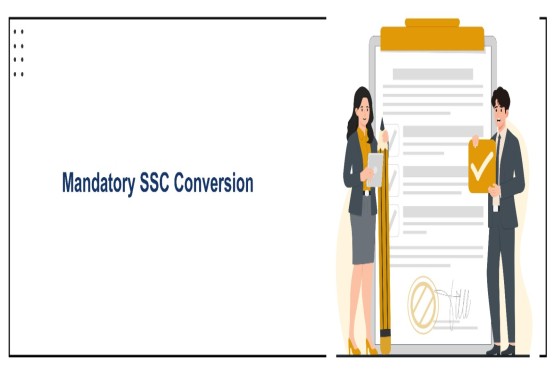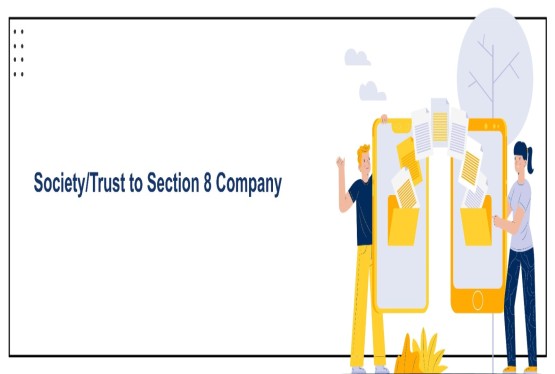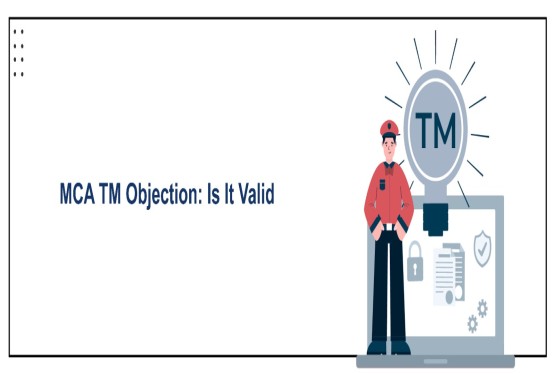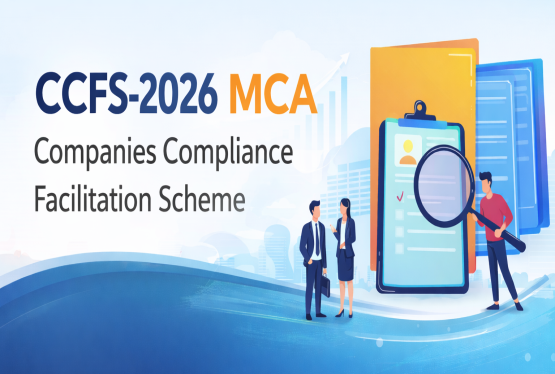The Employees' State Insurance Corporation (ESIC) is an important government scheme in India that gives medical care and money support to workers and their families. But many employers and workers are often confused about who has to register, who can get benefits, and how much they need to pay. If your business employs a certain number of people earning below a specific wage, ESIC registration becomes mandatory. Employees then receive various benefits, including health care, maternity, and disability support. In this article, we explain ESIC in simple terms, including who needs it, who qualifies, and contribution rates. In this article, we explain ESIC in simple terms, including who needs it, who qualifies, and contribution rates along with easy steps to manage everything through the ESIC online portal.
What is ESIC?
The Employees' State Insurance Corporation (ESIC) is a government program in India that gives medical and money support to workers. It began in 1948 and helps workers who earn up to Rs.21,000 a month (Rs.25,000 for disabled workers). ESIC pays for free medical treatment, gives money when workers are sick, supports women during maternity leave, helps in case of work accidents or disability, and gives money to the family if a worker dies because of a job injury. Both employers and employees pay a small amount every month to run this scheme. Employers and workers can easily manage registrations and claims online using the ESIC portal through ESIC login services.
To learn more about How to Check ESIC Insurance Number Online.
Who Needs to Register for ESIC?
Any business or establishment in India that employee 10 or more employees (in some states, 20) with monthly wages up to Rs.21,000 must register under ESIC. This includes factories, shops, hotels, restaurants, cinemas, newspapers, private educational institutions, and hospitals. For employees with disabilities, the wage limit is Rs.25,000 per month. Registration is mandatory to ensure that eligible employees receive social security benefits such as medical care, sickness and maternity benefits, and support in case of workplace injuries. Even casual, temporary, and contract workers must be covered if they meet the wage criteria. Employers can complete the registration process easily through the ESIC in portal using ESIC employer login, making compliance simple and transparent.
Who Qualifies for ESIC?
All workers who earn up to Rs.21,000 per month can get ESIC benefits if their company or shop is registered under ESIC. For disabled employees, this limit is Rs.25,000. It doesn’t matter if they are permanent, contract, part-time, or temporary, if their pay is within this limit, they are covered. Once registered, each employee gets a special insurance number and an e-Pehchan card, which they can use to get free medical treatment, cash help when sick, and other benefits. Even if the worker’s salary increases above Rs.21,000 later, they still get benefits until the current contribution period ends. Employees can easily check their details, contributions, and benefits online using ESIC employee login on the official esic in website. This makes it simple for every worker to understand and use their ESIC benefits.
Learn more about Difference between ESIC and PF.
How Much to Pay?
Under ESIC, both the employer and the employee need to pay a small part of the employee’s monthly salary to keep the benefits active. The employer pays 3.25% of the worker’s total monthly salary, and the employee pays 0.75%.
For example, if someone earns Rs.15,000 a month, the employer will pay Rs.487.50, and the employee will pay Rs.112.50. These amounts go into the ESIC fund, which is used to give medical help, sick leave payments, and other benefits to workers and their families.
The employer collects the employee’s part from their salary and then deposits both shares every month.
Employers can pay easily through esic employer login on the esic.in website. Employees can check if payments are made properly using esic employee login. Paying on time makes sure workers can get all their ESIC benefits without any problem.
What is Included in Wages?
Under ESIC, "wages" mean the total money an employee regularly earns every month. It includes basic salary, dearness allowance (DA), house rent allowance (HRA), overtime pay, incentives, meal or travel allowances paid in cash, and any other regular cash payments.
However, some payments are not counted as wages. These include annual bonus, retrenchment compensation, encashment of leave, gratuity, and employer contributions to provident fund or pension.
Knowing what is included in wages is important because ESIC contributions (3.25% from the employer and 0.75% from the employee) are calculated based on this total amount.
Employers must correctly calculate wages to avoid underpaying or overpaying contributions.
Employers can check and update wage details easily using esic employer login on esic.in, and employees can see their wage records and contributions using esic employee login to stay informed and ensure they get the right benefits.
Contribution and Benefit Periods
Under ESIC, there are two important periods to understand: Contribution Period and Benefit Period.
The Contribution Period is when employers and employees pay their ESIC contributions. There are two periods in a year:
-
1st April to 30th September
-
1st October to 31st March
The Benefit Period is when employees can use ESIC benefits based on their contributions. It comes right after the contribution period:
-
For contributions from April to September, the benefit period is 1st January to 30th June.
-
For contributions from October to March, the benefit period is 1st July to 31st December.
This system ensures that workers continue to get medical and cash benefits like sickness and maternity support.
ESIC Login: Accessing Online Services
ESIC has made it easy for both employers and employees to manage everything online through the ESIC website. The ESIC login system helps save time and keeps all records safe and updated.
Employers can use the ESIC employer login to register new employees, file monthly contributions, generate challans, and update employee details. This helps them stay compliant without paperwork hassles.
Employees can use the ESIC employee login to check their contribution history, download their e-Pehchan card, track claims, and see if they are eligible for benefits.
Using ESIC login services makes the process simple, transparent, and quick for everyone. It also helps employees feel more secure, knowing they can check their own details anytime. By using these online tools, both employers and employees can easily manage ESIC requirements from anywhere.
Registration Process of ESIC
Here’s how both employers and employees can complete their ESIC registration easily:
For Employers
-
Register on the official ESIC website (esic.in) using esic employer login.
-
Fill in business details like company name, address, and type of establishment.
-
Add employee details, including number of employees and their salaries.
-
Upload required documents such as PAN card, address proof, and bank details.
-
Once verified, receive a unique 17-digit Employer Code Number for your business.
For Employees
-
After employer registration, each eligible employee is registered under ESIC by the employer.
-
Employer fills in employee’s personal details and salary information on the ESIC portal.
-
Employee gets a unique ESIC Insurance Number for lifetime use.
-
Employee receives an e-Pehchan card, which is used to access medical services and claim benefits.
-
Employees can check their records and benefits online anytime using esic employee login.
Benefits of ESIC
Here are the main benefits that employees and their families receive under the ESIC scheme:
Free medical care
ESIC offers free, full medical care to insured employees and their family members at ESIC hospitals and clinics across India. This covers doctor visits, medicines, tests, and even hospitalization if needed. The goal is to ensure workers, and their families receive quality healthcare without worrying about high medical costs.
Sickness benefits
If an employee falls sick and cannot work, ESIC provides cash payments equal to 70% of their salary for up to 91 days in a year. This helps workers manage household expenses during their recovery time without financial stress and supports them in getting back to work healthier.
Maternity benefits
Women employees covered under ESIC receive paid maternity leave for up to 26 weeks, along with full medical care before and after childbirth. This benefit ensures both mother and child get proper health support, and the mother can recover and spend time with her newborn without income loss.
Disablement benefits
If a worker gets injured at work and becomes temporarily or permanently disabled, ESIC offers financial compensation. This may be given as regular payments or a lump sum, depending on the situation. It helps the employee, and their family manage expenses and continue living with dignity during tough times.
Dependents’ benefits
If an employee dies due to a work-related accident or injury, ESIC provides monthly pension payments to their dependents, such as spouse, children, or parents. This helps the family manage their living expenses and maintain stability after losing their main source of income unexpectedly.
Funeral expenses
In case an insured employee passes away, ESIC gives up to Rs.15,000 to the family to help cover funeral and related expenses. This support allows families to handle immediate costs without financial burden during an already difficult and emotional time, providing important relief and assistance.
Rehabilitation support
For employees who suffer from work-related injuries or disabilities, ESIC provides vocational rehabilitation services. This includes special training and therapy to help them regain skills and return to work. The aim is to make sure they can earn and live independently again after their recovery.
Extended sickness benefits
If an insured employee suffers from long-term serious illnesses like tuberculosis, cancer, or other severe diseases, ESIC provides cash benefits for up to two years. This support helps them manage medical costs and daily expenses, so they can focus on treatment and recovery without extra financial stress.
Penalties for Non-Compliance
These are the penalties employers must face for not following ESIC rules or missing required payments on time:
Fines and Interest
If employers do not pay ESIC contributions on time, they must pay the pending amount along with interest. This extra payment acts as a financial penalty and encourages timely compliance. It helps ensure employees do not lose their benefits because of the employer’s delay or carelessness.
Damages
Besides interest, ESIC can also charge damages (penalty fees) for late or missed payments. These are additional charges meant to punish and discourage non-compliance. The amount of damages depends on how long the payment has been delayed and can become a significant extra cost for the employer.
Legal Action
If an employer keeps ignoring ESIC rules or commits serious violations, they can face legal action. This includes court cases and possible prosecution under the ESIC Act. In extreme cases, it can even lead to imprisonment, creating big legal and reputation problems for the employer.
Recovery of Dues
ESIC authorities have the power to recover unpaid contributions directly from employers. This includes both the employer’s and employee’s shares that were not paid. Authorities can seize assets or take other strong steps to collect the amount, ensuring workers are protected and contributions are fully recovered.
Employer Liability
Employers are fully responsible for registering eligible employees and paying contributions correctly and on time. Failure to do this harms employees’ rights to benefits and puts the employer at risk of penalties, legal trouble, and damage to their reputation as a responsible business.
Why ESIC Compliance Matters
ESIC compliance is important because it protects employees’ health and financial security while keeping employers legally safe. When employers follow ESIC rules, workers and their families get access to free medical care, sickness benefits, maternity support, and accident compensation. This builds trust, improves employee satisfaction, and helps retain talent.
For employers, staying compliant avoids heavy fines, penalties, and possible legal action, which can harm both finances and reputation. It also shows that the business cares for its people and follows ethical practices.
Using tools like esic employer login and esic employee login on the esic in portal makes compliance simple and transparent. Overall, ESIC compliance supports a healthier, happier, and more secure workplace for everyone.
Final Words
ESIC is an important scheme that helps keep workers and their families safe by giving them medical care and financial support during tough times. Understanding who needs to register, who can get benefits, and how much to pay makes it easier for both employers and employees to follow the rules. Employers should always register on time and pay contributions regularly to avoid penalties and to take care of their team. Employees should check their details and benefits using the employee login option on the ESIC website, so they know they are fully protected.
By following ESIC rules properly, everyone can feel secure and focus on their work without worry. It builds a supportive, secure, and positive workplace where everyone feels cared for and can focus on their work without worry.
FAQs
Q1. What is ESIC?
Ans. ESIC (Employees' State Insurance Corporation) is a government scheme in India that provides medical care, cash benefits, and social security to workers earning up to Rs.21,000 per month, helping protect them and their families during sickness or emergencies.
Q2. How to find ESIC number?
Ans. You can find your ESIC number on your e-Pehchan card given by your employer after registration. You can also check it by logging into the ESIC employee portal or asking your HR or employer for your unique insurance number.
Q3. What is ESIC number?
Ans. An ESIC number is a unique 10-digit insurance number given to each registered employee under the ESIC scheme. It helps track an employee’s contributions and benefits and stays the same throughout their working life, even if they change jobs.
Q4. How to know ESIC number by mobile number?
Ans. To know your ESIC number using your mobile number, visit the ESIC employee login portal, choose "Know your IP number," and enter your registered mobile number and other details. You’ll receive your ESIC number linked to that mobile.
Q5. How to download ESIC Card?
Ans. To download your ESIC card (e-Pehchan card), log in to the ESIC employee portal, go to the "e-Pehchan card" section, enter your details, and download or print the card easily for use at hospitals and clinics.
Q6. Who needs to register for ESIC?
Ans. Any business or establishment with 10 or more employees (20 in some states) earning up to Rs.21,000 per month must register under ESIC.
Q7. What is the salary limit to qualify for ESIC?
Ans. Employees earning up to Rs.21,000 per month qualify. For employees with disabilities, the limit is Rs.25,000 per month.
Q8. Do contract and casual workers qualify for ESIC?
Ans. Yes. Contract, temporary, and casual workers are also covered if they work in a registered establishment and meet the wage limit.
Q9. What documents are needed for ESIC registration?
Ans. Employers need to provide business registration proof, PAN, address proof, employee details, and bank information during registration.
Q10. What is an e-Pehchan card?
Ans. It’s an identity card given to registered employees under ESIC. It has their insurance number and helps them access medical services easily.











































































_crop10_thumb.jpg)


































































_crop10_thumb.jpg)
_crop10_thumb.jpg)



_crop10_thumb.jpg)


_crop10_thumb.jpg)





_crop10_thumb.jpg)

_crop10_thumb.jpg)














-suratgujarat-section-158_crop10_thumb.jpg)
-suratgujarat_crop10_thumb.jpg)
-(33)_crop10_thumb.jpg)



-ahmedabad_crop10_thumb.jpg)
-learn_crop10_thumb.jpg)

-learnn_crop10_thumb.jpg)



























































_crop10_thumb.jpg)























_Guidelines_learn_crop10_thumb.jpg)























_learn_crop10_thumb.jpg)
_crop10_thumb.jpeg)










_crop10_thumb.jpg)




_Second_Amendment_Rules,_2025_learn_crop10_thumb.jpg)







_learn_crop10_thumb.jpg)











































_learn_crop10_thumb.jpeg)























_learn_crop10_thumb.jpg)



_rd_roc_learn_crop10_thumb.jpg)
















_learn_crop10_thumb.jpg)














_learn_crop10_thumb.jpg)
_Learn_crop10_thumb.jpg)











































_learn_crop10_thumb.jpg)




_learn_crop10_thumb.jpg)













_crop10_thumb.jpeg)















